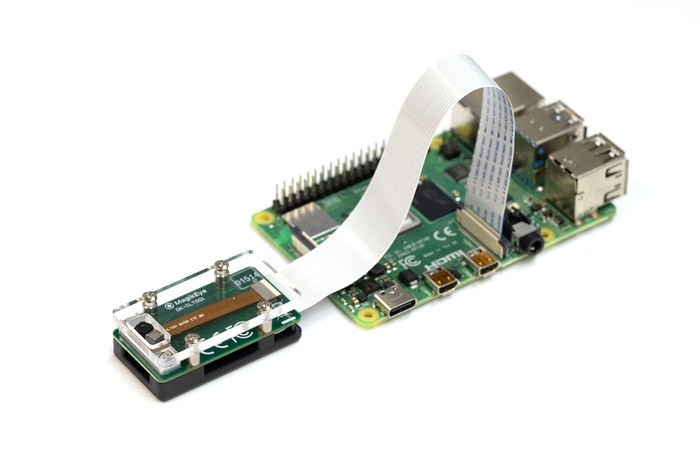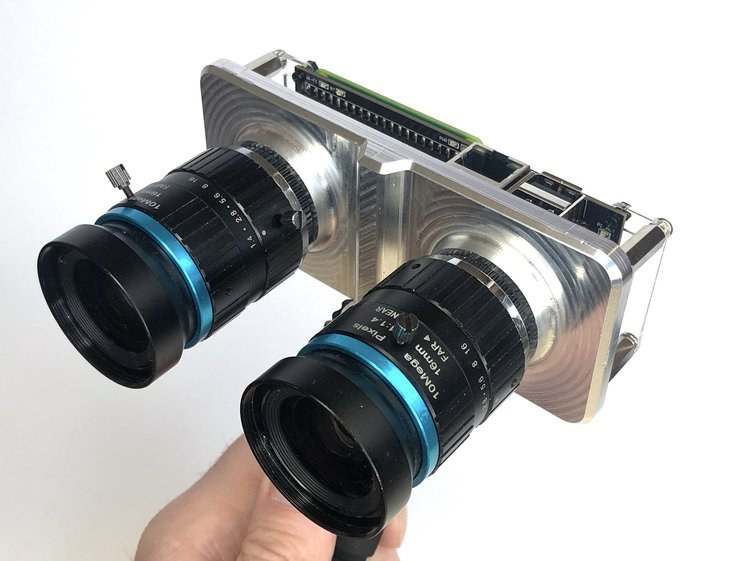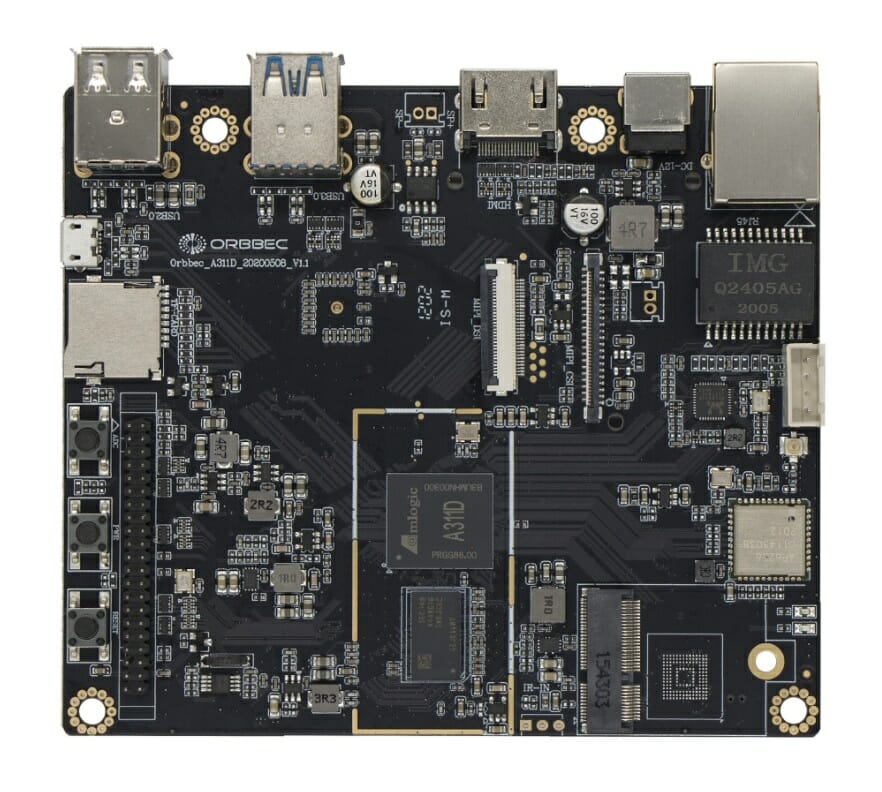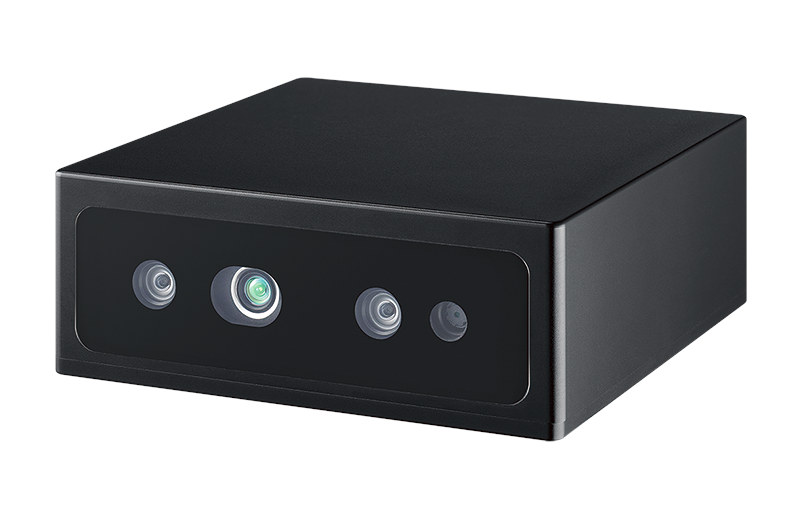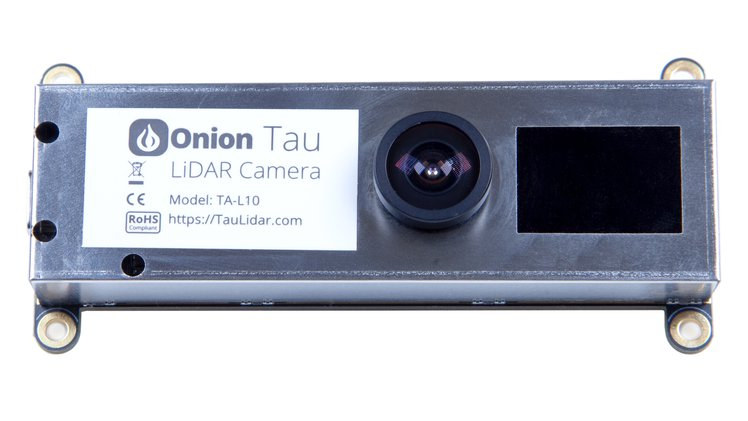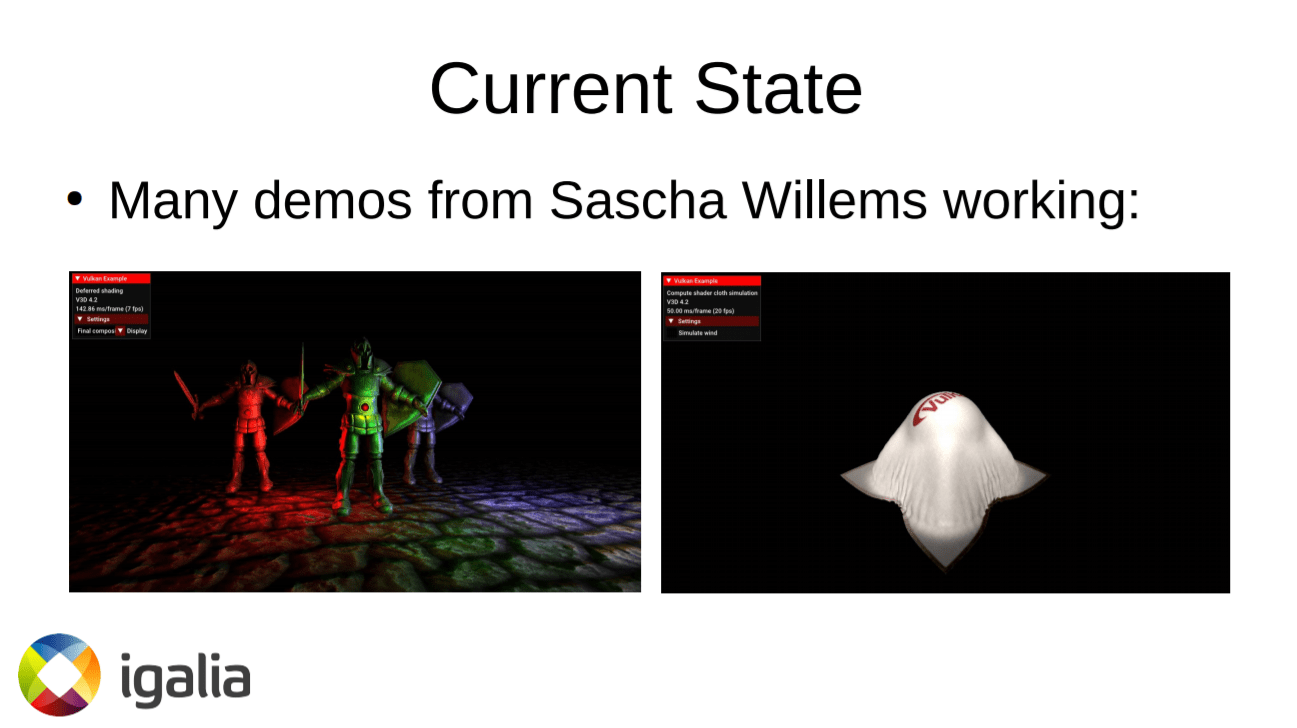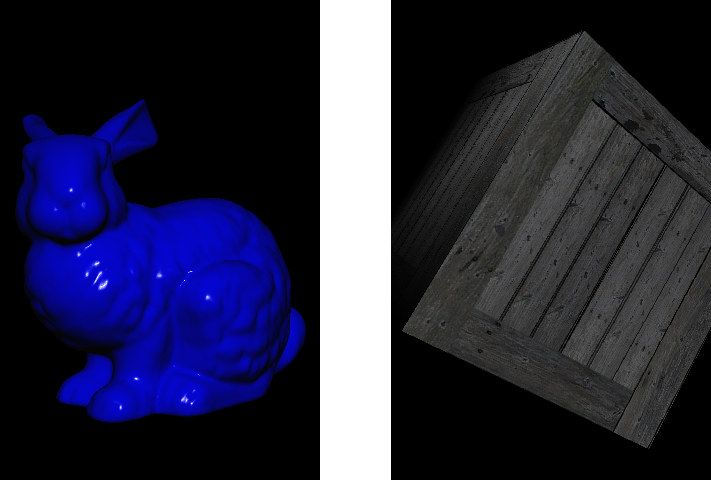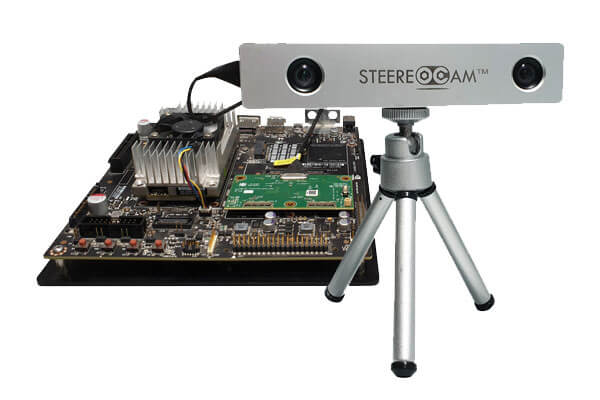MagikEye ILT001 developer kit (DK-ILT001) is a low-latency 3D sensing kit that connects to the Raspberry Pi’s MIPI CSI camera connector and features the company’s Invertible Light Technology (ILT) module with an infrared laser and a CMOS image sensor. The company says a “unique algorithm” developed in-house can generate 3D point cloud datasets acquired at high speeds (up to 120 fps) and with very low latency using simple hardware configuration. The kit targets researchers, students, and hobbyists working on machine vision, robotics, automated carriers, and other projects that can benefit from low-latency 3D sensing. MagikEye DK-ILT001 kit key features and specifications 850nm infrared light laser CMOS image sensor Range up to 1.5 meters (15 to 80 cm recommended) Compatibility – Raspberry Pi Zero W/3B/3B+/4 Power Supply – 3.3V (via MIPI Interface on Raspberry Pi) Power Consumption – 0.6W (average) Dimensions – 44 x 24 x 16 mm (within enclosure) Weight […]
StereoPi v2 stereoscopic camera is powered by Raspberry Pi CM4 (Crowdfunding)
StereoPi stereoscopic camera based on Raspberry Pi Compute Module 3 was introduced in late 2019 on Crowd Supply. The camera can record 3D video, create 3D depth maps with OpenCV, and benefits from the Raspberry Pi software ecosystem. The developers are now back with an upgraded model. StereoPi v2 comes with many of the same features, but as it is based on Raspberry Pi CM4 (Compute Module 4) it offers better performance, Gigabit Ethernet, Wifi & Bluetooth connectivity out of the box, while other features like PoE, TFT screen, shot button, etc.. are optional. StereoPi v2 specifications: Supported SoM – Raspberry Pi CM4 or CM4Lite modules Storage – MicroSD card socket Video Output – Micro HDMI port Camera I/F – 2x MIPI CSI camera connector plus “hackable camera lines” Networking – Gigabit Ethernet RJ45 port, plus optional WiFi 5 and Bluetooth 5.0 on Raspberry Pi CM4 module USB – 2x […]
Zora P1 Amlogic A311D Development Board interfaces with Orbbec 3D Cameras
We have already seen the powerful Amlogic A311D powered Khadas VIM3 SBC, and Orbbec announced the Zora P1 development board for Orbbec 3D cameras, supporting robotics, gaming, smart homes, etc. Some of the other products showcased at the CES 2021 by Orbbec include its first 3D sensor with time-of-flight (TOF) technology, the latest Astra+ camera, and a real-time industrial 3D camera. “Innovations in 3D imaging, combined with broader advances like 5G, artificial intelligence, and ultra-fast processors, are transforming the application landscape for designers and engineers,” said David Chen, co-founder, and director of engineering at Orbbec. “Our new camera with time-of-flight (TOF) technology is a great example. Its high resolution and tracking capabilities make it perfect for all kinds of products including fall detection, security, even at-home yoga and exercise products.” Orbbec’s Zora P1 Development Board Zora P1 is a processing board for developers and enthusiasts to integrate 3D imaging and associated computing tasks for demanding industrial applications. Orbbec has specially designed this long-lasting solution to work with its 3D […]
Industrial-grade 3D Vision Camera features Rockchip RK3399 SoC, Intel RealSense Technology
Vecow has just launched DVC-1000 industrial-grade 3D vision camera running Ubuntu on Rockchip RK3399 processor and based on Intel RealSense technology. The camera is rated IP67 for protection from water and dust, supports PoE, and the company says it’s “ideal for Robot Vision, Autonomous Mobile Robot, Object Dimensioning, and Intelligent Surveillance”. Vecow DVC-1000 specifications: SoC – Rockchip RK3399 hexa-core Cortex-A72/A53 processor @ up to 1.8 GHz with Mali 860MP4 GPU, 4K encode/decode System Memory / Storage – TBD Camera Depth Module Depth Sensor – OmniVision OV9282 Active Stereoscopic technology Operating Range – From 0.105 to 10 meters (depends on calibration, scene, and lighting conditions). Resolution – 1280 x 720, 640 x 480, 480 x 270, or 424 x 240 Frame Rate – Up to 60 fps Shutter Type – Global Shutter FoV (H x V x D) – 87°±3° × 58°±1° × 95°±3° @ HD Resolution Z Accuracy – ≤ […]
Onion Tau is an affordable 3D depth LiDAR camera (Crowdfunding)
Onion is better known for its Omega IoT boards running OpenWrt, but the company has now come up with a completely different product: Onion Tau 3D depth camera equipped with a 160×60 LiDAR sensor. The device plugs like a USB webcam to a host computer or board, but instead of transferring standard images, the camera produces 3D depth data that can be used to detect thin objects, track moving objects, and be integrated into other applications leveraging environment mapping such as SLAM (Simultaneous localization and mapping). Onion Tau LiDAR camera (TA-L10) specifications: Depth technology – LiDAR Time of Flight Depth stream output – 160 x 60 @ 30 fps Depth range – 0.1 to 4.5 meters Depth field of view (FOV) – 81˚ x 30° Grayscale 2D camera image sent with 3D depth map data Host interface – USB Type-C port Dimensions – 90 x 41 x 20 mm; 4x […]
Raspberry Pi 4 Vulkan Project Status & Future Plans – Q4 2020
Igalia has been developing a new open-source Mesa driver for the Raspberry Pi 4 since December 2019 and announced the implementation of the classical triangle Vulkan demo last February. Four months after the announcement of the Vulkan effort for Raspberry Pi 4 (v3dv), they merged with Mesa upstream. This means Raspberry Pi 4’s v3dv Vulkan driver has become part of the official Mesa drivers. Thus, bringing several advantages, like easy to find as it is now available on the official Mesa repository. Bugs can now be filed on the official Mesa repository bug tracker. In June, they passed over 70,000 tests from the Khronos Conformance Test Suite for Vulkan 1.0 and had an implementation of a significant subset of the Vulkan 1.0 API. This does not mean that the driver is ready for production use as they have implemented the full Vulkan 1.0 API. They are now passing over 100,000 tests in the Kronos […]
Panfrost Gets First 3D Renders on Bifrost GPU (Mali-G31) including Basic Texture Support
Collabora has been working on Panfrost open-source Arm Mali GPU driver for over a year. The drive aims to support both Midgard and Bifrost families. But so far, the company had mostly focused on Midgard (Mali-T6xx/T7xx) GPUs with for example experimental OpenGL ES 3.0 support announced last February. Collabora engineers, such as Alyssa Rosenzweig, have now started to work on Bifrost support, and some good progress has been made since they managed to have Panfrost render the first 3D graphics with basic texture support using a platform with an Arm Mali-G31 GPU. Alyssa notes that while Midgard and Bifrost have a similar command stream requiring a few changes, the Bifrost instruction set is completely different and required building a new compiler from scratch. This leads to changes to the Intermediate Representation (IR), 16-bit data support, a different register allocation mechanism due to adapt to irregular vector architectures, and the latter […]
STEEReoCAM is a 3D Stereo Camera for NVIDIA Jetson Nano, TX2, & AGX Xavier Dev Kits
STEEReoCam 2MP 3D Stereo Camera The latest e-con systems camera added to the lineup is the STEEReoCam. A 2MP 3D MIPI compliant stereo camera that works with the NVIDIA Jetson Nano, AGX Xavier, and Jetson TX2 development kits. Improved Overall Function The camera has greater accuracy and depth range, with an OmniVision 1/2.9″ OV2311 global shutter CMOS sensor. And the STEEReoCam comes bundled with CUDA the proprietary accelerated stereo SDK, that uses the GPU in the NVIDIA Tegra processors. AI and IoT Applications The camera is targeted towards depth sensing, AVG, robotics, face and gesture recognition, drones, medical procedure robots, and embedded visions. Software Development Kit e-Con Systems provides a Software Development Kit (SDK) package for the camera designed to work with NVIDIA Jetson development boards. The SDK is built on OpenCV 3.4.2 and CUDA Compute Capability 5.3/7.2/6.2. Sample Linux applications, some of which are shown in the video […]


